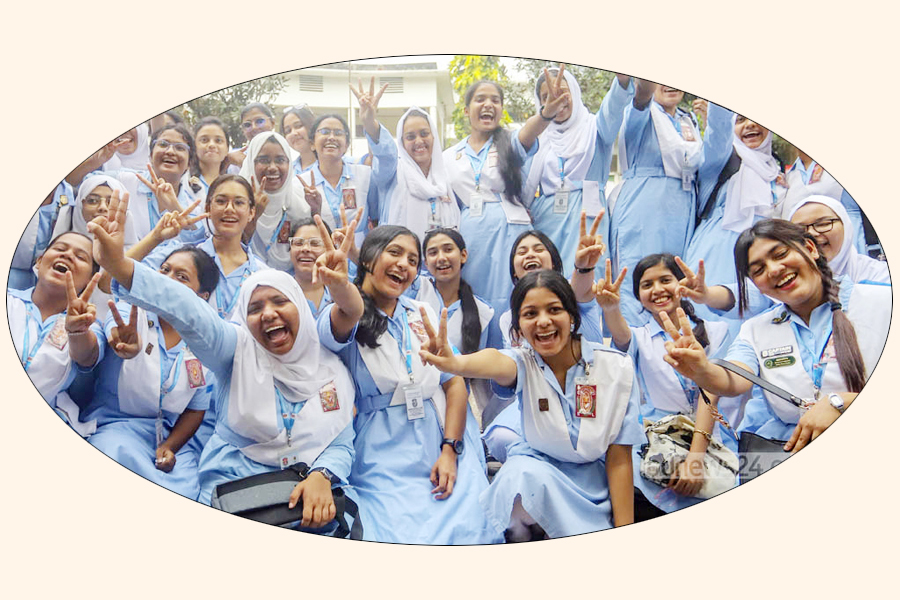
Published :
Updated :

Every year, publishing of the Secondary School Certificate (SSC) and Higher Secondary Certificate (HSC) exam results is followed by mixed reactions from the participating students. And it is only expected that successful candidates will celebrate, while the unsuccessful ones will be sad. But some unsuccessful students commit suicide to express their unhappiness about the exam results. This is very unfortunate. This year's SSC results announced on July 10 were also followed by, so far as reports go, more than a dozen suicides mostly committed by girls. Families whose young members take their lives in this way are naturally devastated. But society has, as it were, accepted such unwanted family tragedies as a fait accompli. Thoughtful articles are written, discussions are held to find an answer to this very old problem of self-inflicted deaths by some teenage boys and girls every year who could not perform in exams according to their own or their families' expectations. Why should failures in exam draw self-destructive reaction from our children? Obviously, it is the loss of self-esteem that drives our children to end their lives so gratuitously. If anything, it is the prevailing system of examination to evaluate young learners' academic aptitudes to blame for the tragic consequences that befall them. It is not that the same students who committed suicide due to their lack of success following July 10's SSC results never failed in their school examinations. Some of them might have indeed experienced failures in their school level tests. But those could not traumatise them in this way. In fact, the long wait for the SSC or HSC results, the tension it gives rise to among the candidates, their family members and well-wishers prove too heavy for those tender-hearted children to bear. So, when the bad news comes, they collapse and choose to die.
Examinations to evaluate a student's school performance should not be so exacting. Moreover, why should a three-hour test for each subject decide the fate of a student's entire educational career? Can even an anonymous examiner selected by the education board who have no idea about the candidate whose answer script s/he is marking, be an honest judge of the examinee's real abilities?
What is more, just anonymity or remoteness cannot be the sole yardstick to ensure the impartiality of an examiner. On the contrary, a teacher who has intimate knowledge of the student being evaluated for her/his academic skills should be the best person to judge the candidate in question.
What is being argued here is the fact that the existing system of public examinations to test a student's merit is not foolproof and it has its serious demerits, too. The existing system has to be revamped. The grading method needs also to take into account a student's record of performance during the entire academic year before the final examination. So, methods have to be devised so that some points reflecting a student's test records at school is also incorporated in the final scores achieved by a student in the final publicly held examinations. Also, organising public examinations for the secondary and higher secondary levels needs a rethink. If degrees at the highest levels of education at a university can be awarded by teachers of the same institution, why should it be so different at the secondary and tertiary levels?
In this age of information technology and AI, it should be possible to design an examination system that can assess an individual student's academic aptitude by taking into consideration the history of her/his school records and adding those to the grade points achieved through the existing system of public exams where hundreds of thousands of candidates sit for tests at the same time under the country's education boards.
Both the process of learning and the tests to evaluate a student's performance at schools should be enjoyable and humane. And every student regardless of her/his performance should be able to feel happy at the end of the school years.
sfalim.ds@gmail.com


 For all latest news, follow The Financial Express Google News channel.
For all latest news, follow The Financial Express Google News channel.